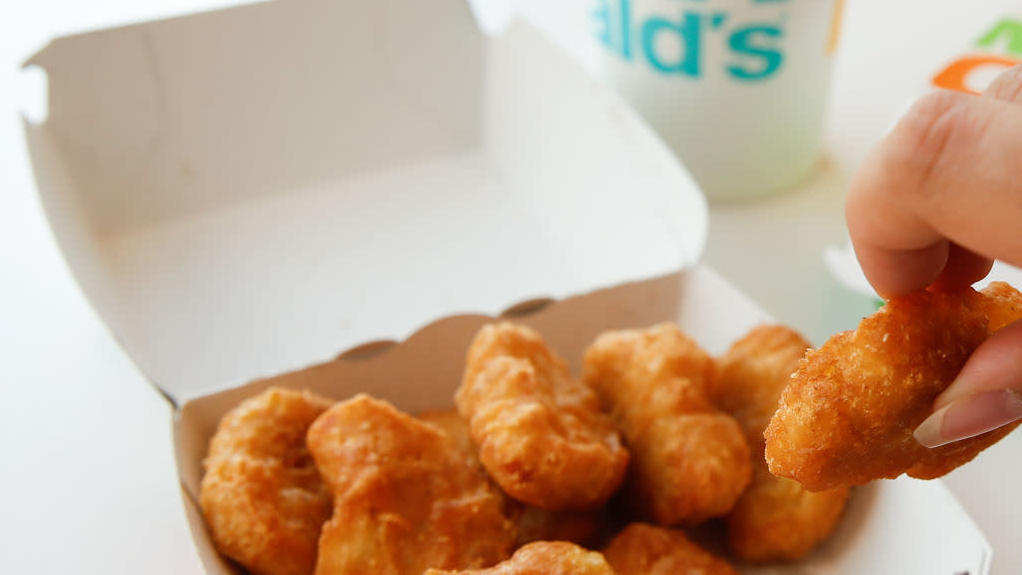Why Some Men Can't Get Past The Kids Menu
We all know someone who's a picky eater. And not just picky, but, like, can't eat more than five things, otherwise they'll have a meltdown-picky. This piece from MEL magazine delves specifically into men's picky eating behavior, what causes it, and why it never quite seems to get better.
The piece opens with a man named Bruce who can't eat a vegetable; when he tries, he gags. His diet consists of mostly chicken with a side of mashed potatoes, rice, or noodles. He'll also eat bagels, Rice Chex, or Cheerios, and he's also fine with cheese or pepperoni pizza, along with a lot of Chicken McNuggets, all washed down with Diet Coke. His mother claims she fed him pureed peas as a child, but he doesn't believe it.
When Bruce gets takeout, he defaults to spaghetti and meatballs, but most of his fallback foods are things his mother made for him. These habits started during adolescence, and never changed since then, as is common for people who identify as picky eaters.
Most people grow out of it, but some researchers believe that these picky eating behaviors are more prevalent in men. "It's become more culturally acceptable for a man to reject fruits and veggies, whereas traditionally, females have been the family caretakers and more likely to engage in specific nutrition behavior," says David Wiss, a dietitian from Nutrition and Recovery, an L.A. mental health clinic that specializes in eating disorders
Other picky eaters started that way with bad memories about food. Evan, a 22-year-old from New Jersey, says that growing up with mom's cooking was a negative experience, saying, "My mom couldn't cook to save her life. Our typical dinner ranged from meatloaf (which was terrible) to mac 'n' cheese (which was also terrible)."
It can be hard on relationships, too, as partners navigate these food-based situations together. Hannah, whose boyfriend is a picky eater, sometimes feels the need to get him to eat healthier, but she reminds herself that she's not his mother and that it's not her responsibility. The men interviewed for the article know that there are possible health ramifications down the road. Bruce feels as if he's heavier than he should be, which is why he avoids visiting McDonald's more than twice a week for McNuggets.
And yes, sometimes trauma does factor in: kids might have difficult associations around specific foods or meals if there were, say, fights at dinner. But a lot of these issues seem to be around the neurobiology of preference: reward pathways have already been set at such a young age that it's hard to deviate from them. Picky eaters have always fascinated me (I write about food, after all), and this article helps explain why they eat the way they do, so if you need a distraction from this fine Inauguration Day, take a read and learn as much as I did.
